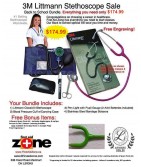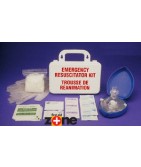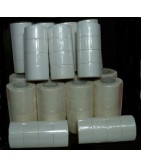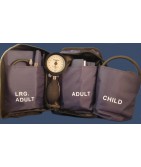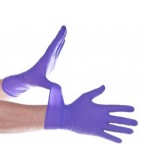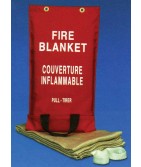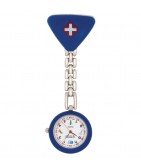Paramedics are required to provide emergency medical care to critically ill and injured people in a hospital environment before the nurse and the doctor sees the patient. As such, their job involves performing an initial assessment of the patient's condition, a diagnosis and a treatment plan to help their patients. Depending on their training, paramedics are able to handle all kind of emergencies, including respiratory problems.
One particular area that paramedics are often called to provide their service is during emergency situations when the patient is unable to breathe and may die if immediate attention is not given. At such times, they need adequate emergency respiratory supplies to save the injured or critically ill person's life.
Some of the essential emergency supplies that paramedics need are:
- Nebulizer: A nebulizer is a device that is used to administer a drug to a seriously injured or critically ill person in the form of mist which the patient inhales into his lungs when breathing. It is used for the treatment of asthma, cystic fibrosis and other respiratory problems. It uses oxygen, compressed air and ultrasonic power to break up solutions and suspension into small aerosol droplets (a mixture of gas and liquid particles) that the patient can inhale from the mouthpiece even when he is unconscious.
- CPR Pocket Mask: A CPR pocket mask is a device that is used to safely deliver air into a patient's mouth during cardiac arrest or respiratory arrest. It's a small device that can be carried in hand. To blow air into the patient's mouth, the paramedic blows it through a one-way valve or a filter. The one-way valve and filter protect the paramedic from being infected by the patient.
- Portable resuscitator: A portable resuscitator consists of a swivel connector, an air-cushioned face mask and a bag. It is used to safely deliver air into a patient's respiratory system.
- Oxygen delivery equipment: Patients in critical condition need to be administered oxygen immediately. Oxygen delivery equipment consists of an oxygen tank, delivery mask and nasal cannula. The equipment can be used in hospitals as well as at home.
- Ventilators: Mostly used in ICU, ventilators are used to help patients in critical condition breathe in and out when they are unable to breathe by themselves.
These and other respiratory supplies are essential for every paramedic in emergency situations such as road accidents, plane crashes, fires and flooding. When people are seriously injured or critically ill and unable to breathe on their own, immediate attention is necessary. Paramedics are trained to keep the patients breathing and stabilized until a doctor is at hand to see them.







